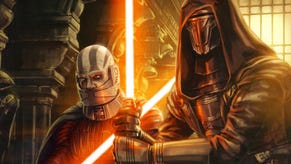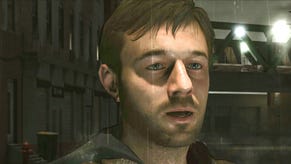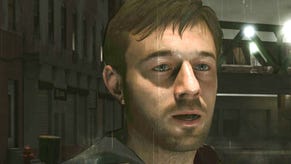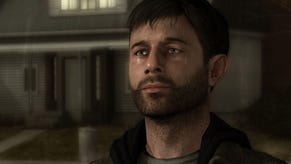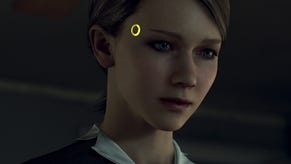Heavy Rain
Life on Mars.
Is it fun? Almost never. Using the DualShock3's motion sensor to cut out a slice of pizza, or going downstairs to search for Shaun's teddy bear before bed, or sitting down at the kitchen table to watch over him while he does his homework - it all fits, but none of it entertains. Is it interesting? Almost always.
Cage has spoken in the past about his belief that the majority of games are emotionally shallow, perhaps making you angry, frustrated or anxious, but little more. Are we feeling anything else here? It's certainly difficult not to empathise with the broken husk of Ethan Mars, going through the motions of fatherhood despite his very obvious depression. In my life, I've lain in bed at night sometimes and wondered whether my dad's really alright living alone in another city. It makes me sad. Ethan Mars looking after his kid brings that out again.
That foundation seems to be what Cage is driving at, and in that sense the Ethan Mars scene is enormously successful. Achieving it has taken painstaking work, too, and not just in the banks of artists building and lighting every object, or in Cage's extensive scriptwriting. The camerawork deserves particular credit - the way the fixed view switches to inside a bathroom cabinet looking out from behind a box of sticking plasters to frame Ethan's face, for example, may be incidental, but it holds your attention despite the functional context.
Elsewhere Pascal Langdale, the actor who plays Ethan Mars, talks to us about endless days in a full-body motion capture suit, about having to redo facial close-ups because a bead of sweat displaced one of the reflective markers attached to his cheek, about having to learn every line of dialogue in every possible outcome, because if his eyes moved left and right to read a script it would show up in the recording. The strength of the acting is particularly impressive when you consider that Ethan may need to get angry or soften considerably from one moment to the next depending on your input - getting that to look authentic must be torturous.
It's a testament to the developers' and actors' extraordinary dedication, then, that my first instinct is to react to the scene in terms of its dramatic goals and content rather than its technical construction, which is immaculate. And despite my initial reaction on the day (something I alluded to prematurely in our gamescom awards piece) listening back to the tape I feel different about it - never does it really feel forced or overtly contrived, despite the complexity of its purpose. "No one will shout at you or blame you if you do something wrong," says Cage. "It's just that the relationship will be affected."
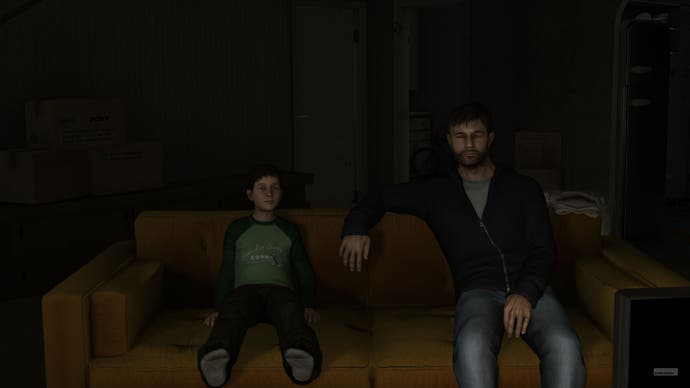
The only slight concern is the strength of the dialogue, which is a little stilted in places. "You can come now Shaun," says Ethan from the kitchen. "Your meal is ready." But then in other places the tone and delivery is pitch-perfect. "Dad? Why do you look so sad?" asks Shaun after Ethan tucks him in. "I think I just need some time to get back to the way things were." "You know dad, what happened to Jason wasn't your fault," Shaun ventures. It's a brave thing for a child to say, and it's at this point that my attitude towards Ethan's son solidifies into compassion. "Good night Shaun," says Ethan, ending the conversation, but not harshly. As he exits the room, he leaves the door slightly ajar so that Shaun won't be left in total darkness.
There are other games that deal with weighty subjects, and there are other games that use intimate, everyday events to develop their stories, but it's enormously encouraging - and unlikely - to encounter one with such vast financial backing and creative freedom. Heavy Rain won't be for everyone. It will be exciting and intense in places, but it doesn't seek to be "fun" by any traditional gaming yardstick; its controls and gameplay scenarios, though interesting and progressive, are a means to an end.
Its success or failure, overall, is impossible to judge even after so many showcases and miles of copy. But rather like our understanding of the mechanics, there's a sense beginning to crystalise that it may not end up being a game that its audience goes into expecting to be entertained, but something they choose to go into for other reasons that prove to be just as valuable. It's as fascinating a prospect now as the semantics about quick-time events and button-matching are ultimately irrelevant.
Heavy Rain is due out exclusively for PS3 next year.

